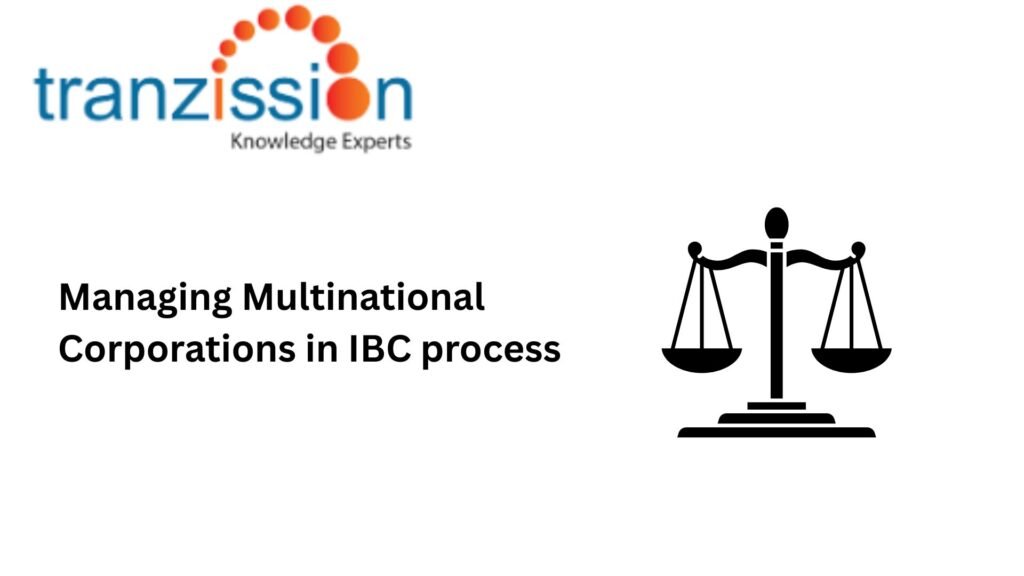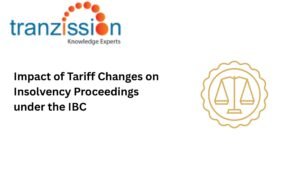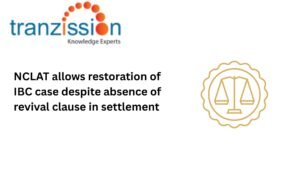
Managing Multinational Corporations in IBC process

Table of Contents
Managing Multinational Corporations in IBC process requires understanding the Insolvency and Bankruptcy Code (IBC), enacted in 2016, which provides a comprehensive framework for resolving insolvency cases. It aims to streamline the process, promote entrepreneurship, and ensure a balanced approach to resolving financial distress for companies, individuals, and partnership firms. The IBC’s key features include a time-bound resolution process, the establishment of the Insolvency and Bankruptcy Board of India for regulation, and adjudicating authorities such as the National Company Law Tribunal (NCLT) and National Company Law Appellate Tribunal (NCLAT). The Committee of Creditors (CoC) holds decision-making power regarding the debtor’s operations, including whether to continue business or liquidate the company, approving or rejecting resolution plans, and confirming the appointment of the resolution professional (RP). The RPs manage the insolvency process, safeguard the debtor’s assets, and facilitate negotiations between creditors and the debtor to achieve a workable resolution plan.
Challenges Faced by Multinational Corporations in IBC process
MNCs face unique challenges in navigating the IBC due to factors like complex global operations, jurisdictional issues, and difficulties in accessing and protecting assets abroad:
Limited Cross-Border Insolvency Provisions:
Sections 234 and 235 of the IBC cover cross-border insolvency cases. However, they are limited because they are dependent on bilateral agreements and letters of request. This means that if a country does not have a reciprocal agreement with India, or if a specific insolvency proceeding does not qualify for a letter of request, the IBC may not provide much assistance in cross-border insolvency matters.
Lack of Legal Harmonization:
The absence of adoption of the UNCITRAL Model Law on Cross-Border Insolvency creates legal uncertainties, hinders cooperation between courts and insolvency professionals in different countries. The lack of a standardized framework for cross-border insolvency proceedings can lead to delays, increased costs, and inconsistent outcomes for debtors and creditors.
Asset Recovery and Creditor Coordination Challenges:
Cross-border asset recovery and credit coordination can present significant challenges due to conflicting jurisdictional claims, divergent legal systems, and a lack of international cooperation. These difficulties hinder efficient asset recovery and distribution, often leading to legal battles and increased costs for all stakeholders.
Recent Developments Impacting Multinational Corporations in IBC process
In the JSW Steel and Bhushan Power Deal Reversal, the Supreme Court’s decision to nullify the $2.3 billion deal created uncertainty about the predictability and stability of India’s insolvency framework, which in turn hindered investment in distressed assets. This ruling, which overturned a resolution plan approved under the IBC, raised concerns among potential buyers and international funds holding distressed debt. The case underscores the need for a more streamlined and efficient insolvency process that balances the interests of various stakeholders. Further, the ruling highlights the need for reforms to ensure better protection for investors and stakeholders, as well as addressing any systematic imbalances in the implementation of the IBC and reinforcing responsibilities of the CoC and other stakeholders.
Strategies for Multinational Corporations in IBC process
Engage Legal Expertise:
Consulting with legal professionals experienced in Indian insolvency law is crucial for navigating the complexities of the IBC. This will ensure adherence to the relevant laws, rules, or regulations, and safeguards the interests of all stakeholders, thus, maximizing chances of favourable outcomes. Legal experts can guide parties through the insolvency process, from initiating proceedings to managing the resolution plan, ensuring smooth and efficient resolution.
Monitor Regulatory Developments:
Staying informed about potential amendments to the IBC, especially those concerning cross-border insolvency, is crucial for businesses, creditors, and RPs. These amendments can impact the way insolvency cases are handled, particularly when companies have assets or operations in multiple countries.
Ensure Compliance and Transparency:
Maintaining accurate financial records and adhering to the IBC’s procedural requirements is important for a fair and transparent insolvency resolution process. This includes keeping detailed records of financial transactions, ensuring adherence to accounting standards, and following the steps outlined in the IBC.
Conclusion
By addressing the challenges proactively and implementing these strategies, MNCs can navigate the IBC process more effectively and maximise their recoveries. The primary legal hindrances of MNCs, there is no legal harmonisation and the adoption of international frameworks in insolvency due to enhancing creditor protection, fostering international trade, and promoting economic stability. Cross border insolvency cases involve challenges related to jurisdictional disputes, recognition of foreign insolvency proceedings, and the enforcement of judgements across borders. This can be difficult for MNCs with assets and operations in multiple countries. MNCs can take the necessary steps to improve operational efficiency, reduce costs, and attract potential investors.
Read more :





